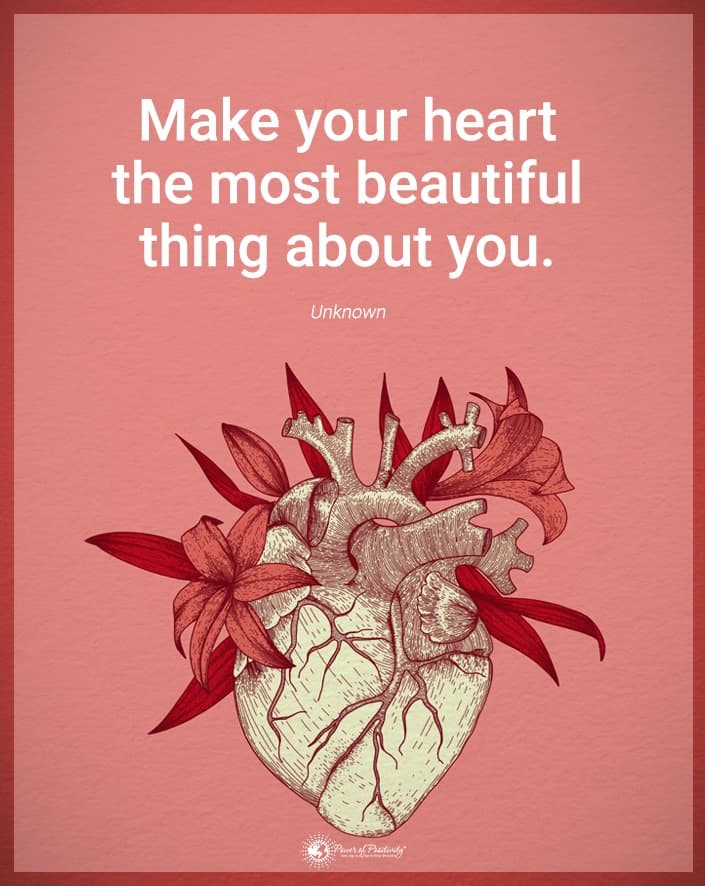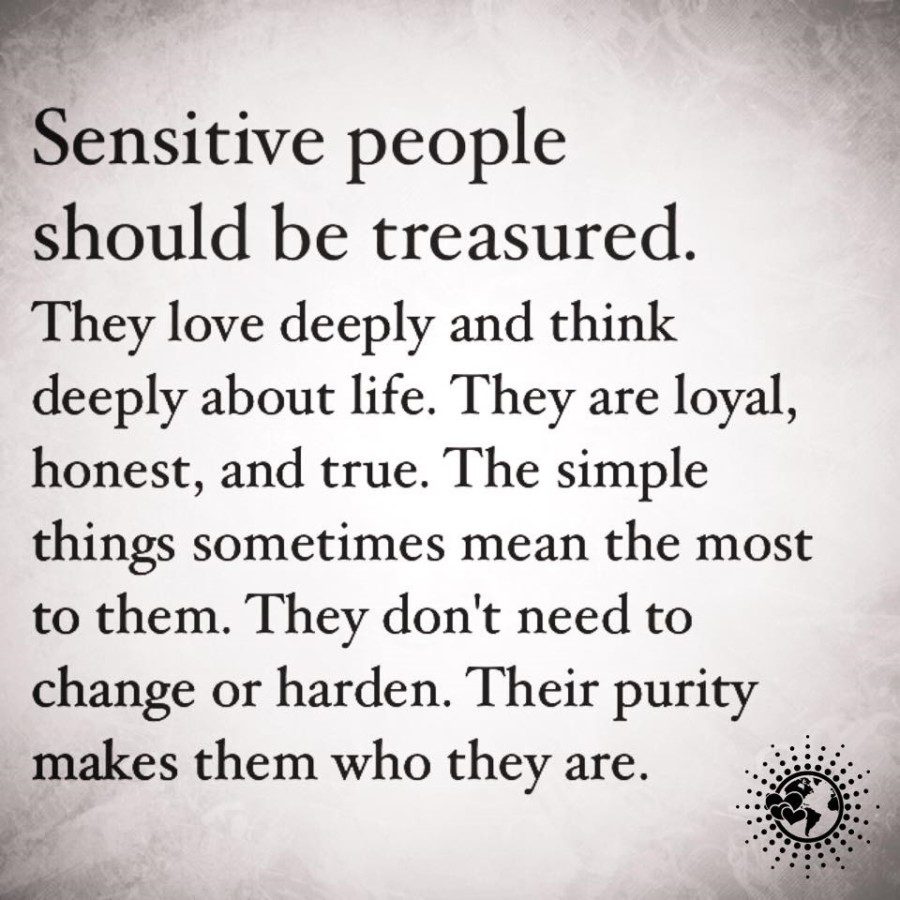Empathy can be best defined as the trait or skill of understanding, sharing, recognizing, and even feeling the emotions, thoughts, and experiences of those around you or those who you see. It is often a crucial skill in developing healthy relationships, moral or ethical decision-making, prosocial behavior, and compassionate attitudes.
Simply put, empathy denotes an ability to walk in the shoes of another person. It can be a complex trait to develop, and some people may believe that empathy is harmful. After all, feeling the pain of others can become tiring. But in moderation, this skill is a fantastic way to improve yourself while helping others. Here are nine ways empathy helps with inner growth.
1. Empathy Reduces Stress
You may have noticed people who are empathetic seem to experience less stress. Considering how research has shown that stress accuses all sorts of diseases, it raises the question – how does empathy help?
- It teaches emotional regulation skills.
- Relating to others in positive ways teaches
- It engages in our ability to control and handle our emotions in a healthy manner.
- It helps us recognize where and when we may be feeling stressed or emotional, thanks to observing and empathizing with our loved ones.
As you can imagine, this helps you become an emotionally more stable person in the long run – indeed a fundamental thing to any future growth and maturation you wish to experience!
 2. It Improves Your Ability To Communicate
2. It Improves Your Ability To Communicate
Communication isn’t as simple as an exchange of words. After all, think about the many times you find yourself constantly misunderstood, no matter how hard you try. As it turns out, empathy can teach you how to express yourself better! This outcome is because:
- You learn how to see, feel, and think from the other person’s perspective.
- You’ll better understand how your words and thoughts may be interpreted by others.
- You can tailor your expression of your thoughts and emotions to the individual you’re communicating with, so they can understand you better.
- You can limit misunderstandings and miscommunications by seeing how the other person would process information from their point of view.
Indeed, you may notice that all of these positive benefits first require you to listen better and understand the other person before you can explain yourself in a way that truly resonates with them. This is why empathy is so important!
3. It’s Good For General Survival
Historically speaking, being social creatures is the critical reason for our species’ continued survival – and despite how much has changed socially, this hasn’t changed on a fundamental level! Empathy allows us to:
- Pick up on nonverbal cues that indicate something is amiss
- Tune in immediately to a situation the second someone starts acting strangely
- React appropriately to a life-threatening situation you haven’t seen yet, just from the behavior of others in the area
- Pay attention to abnormal atmospheres or facial features that suggest something is wrong
These examples may sound dramatic, but they can be applicable in all sorts of places – from recognizing when a bar fight is about to erupt to paying attention to a loved one who seems to be quieter than usual.
No matter which way you slice it, empathy may be the critical thing that saves you or your loved one’s life.
4. It’s Good For Your Health
How are empathy and your physical health related to each other? They’re more intimately intertwined than you might think. Various studies have shown a positive correlation between the ability to handle stress – a source of many health issues – and high levels of empathy.
This is because of empathy:
- It encourages us to form close bonds that form the basis of our support network.
- Teaches us how to form healthy coping mechanisms when trying to manage stress.
- It assists us in paying attention to our bodies as an extension of learning how to observe those around us.
- Reduces depression and anxiety levels as we communicate and empathize with our loved ones.
- It helps us create healthy boundaries so we can avoid picking up second-hand stress and negative emotions.
- Encourages positive thinking and mindsets via reconnecting to the world around us.
This ultimately leads to a better psychological and physiological state, resulting in a much better health and immune system. Not to mention, it’s easier to take care of yourself when you’re mentally and emotionally more stable and healthy!
5. It Can Guide Your Moral Compass
Normally, we learn empathy and emotional regulation in childhood – something that research has shown is important for our development. But that doesn’t mean our journey stops there!
As we grow older and meet new people, we must continue to learn and adapt to the changing world around us – and in this aspect, empathy is an essential tool. For example, it:
- It helps us re-evaluate our core values and morals
- Shapes and guides how we care for others and how we expect to be cared for
- It shows us how to take care of those around us
- Encourages us to strive for a better understanding of those we love
In other words, empathy can actually help us reshape our foundational understanding of the world and our relationship with it. This is important, as it can lead to us growing both mentally, emotionally, and spiritually as we strive to meet the needs of our loved ones!
 6. It Connects You To Others
6. It Connects You To Others
Ever found yourself just sitting there, unsure as to how to respond to someone else? Empathy is actually a vital and helpful tool in this regard!
How so? Research has shown that empathy is responsible for helping us better understand and respond to a loved one’s actions – both in the present and for potential future actions. Here are a few ways how it mentally preps you and encourages you to form positive relationships:
- It helps us feel and better understand what the other person is experiencing.
- Teaches us how to reciprocate and make the other person feel seen and heard.
- It assists us in forming and nurturing intimate bonds where both sides can feel safe and vulnerable.
- It encourages us to listen to those around us truly and really take the time to be there for them.
The final result? We end up learning not just about experiences we couldn’t otherwise have possibly gotten on our own, but also will likely end up with a close and personal relationship with the other person!
Over time, you will likely find that this sort of behavior cultivates deep, intimate connections that can bring you a sense of peace and stability – an incredibly vital foundation for any further inner growth you wish to achieve.
7. It Helps Prosocial Behavior
We are only human, so it’s natural to want close, intimate, and meaningful bonds. In fact, it is hardwired into our very DNA – we wouldn’t have gotten this far without that desire to bond with those around us, after all.
As you can imagine, this means that the ability to empathize is crucial. This is because it:
- It teaches us how to become more compassionate and caring
- It’s crucial to our ability to communicate and connect with others
- It encourages us to care for and help each other
- Assists us in being kind and understanding to others around us
- It tries to make us see things from a different point of view
From there, we then learn how to adjust our behavior and actions to ensure we are doing our best to love and care for those around us. This can then ultimately lead us to create the relationships so fundamental to our emotional and mental wellbeing!
8. It Fights Burnout
There is some irony in how, in an increasingly connected world, we feel even more lonely. And with that loneliness comes all sorts of mental health struggles and burnout as we struggle with work on our own. But it doesn’t have to be this way.
A study has shown that those workers who are empathetic actually deal with less burnout – something you might find interesting! Here’s how empathy can help you achieve these outcomes:
- It guides us in how we can communicate with those around us.
- Assists in the development of soft skills that are crucial to handling conflicts with others.
- It teaches us how to ensure both sides feel seen and heard.
- It helps us connect and form meaningful relationships with others.
- Encourages us to create social networks that can inversely support us in our times of need.
- Promotes positive thinking as we pull from the experiences of others around us.
With the development of better communication and conflict-management skills, you may find yourself becoming a more emotionally mature and understanding person as you rise against the challenges life throws at you. And it’s all thanks to empathy!
9. It Improves Your Work
With just how helpful it is when you’re trying to both listen and to be heard, it’s no wonder that empathy forms a core aspect of communication – a vital skill in any team-based work. But there’s more to this than just better communication. Empathy also helps:
- Negotiating with others to create a solution that meets everyone’s needs and desires
- Encourages teamwork when trouble-shooting issues
- Creates an environment of respect and trust
- It makes people feel valued and involved in any project
- It makes for a smoother transition and workflow, as you are already paying attention and anticipating the quirks and workstyles of those around you
As you can imagine, these aspects are all super helpful when you’re working on any team-based project. And these skills are transferable too! You can just as easily apply these positive benefits to both your work and your personal life and watch your relationships become better for it!
 Final Thoughts On Some Ways Empathy Helps With Inner Growth
Final Thoughts On Some Ways Empathy Helps With Inner Growth
Empathy is a valuable trait, yet it may seem like it is rapidly declining in today’s world. This can seem discouraging, and some may even worry that being empathetic may open them up to feelings of pain and discomfort.
The lucky truth is that this is not the case. Empathy is crucial for your inner growth and can actually make you stronger, healthier, and more resilient. If you struggle with developing empathy for others, you can speak to a mental health professional for help.


















